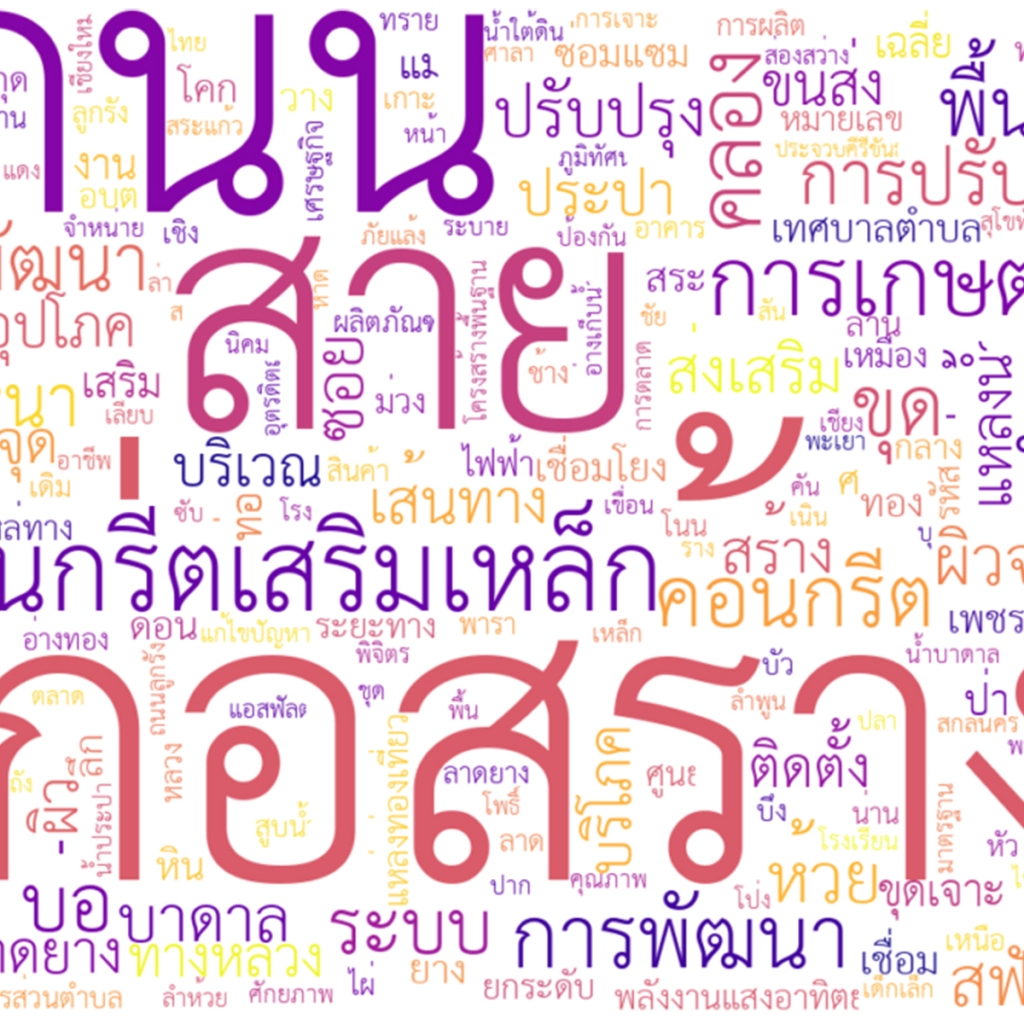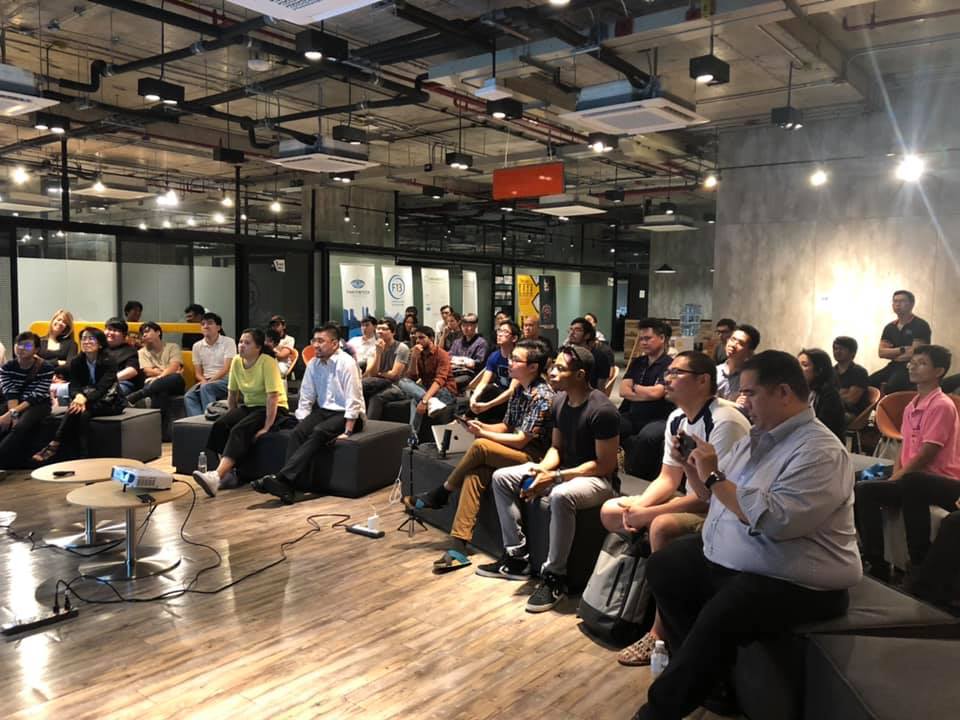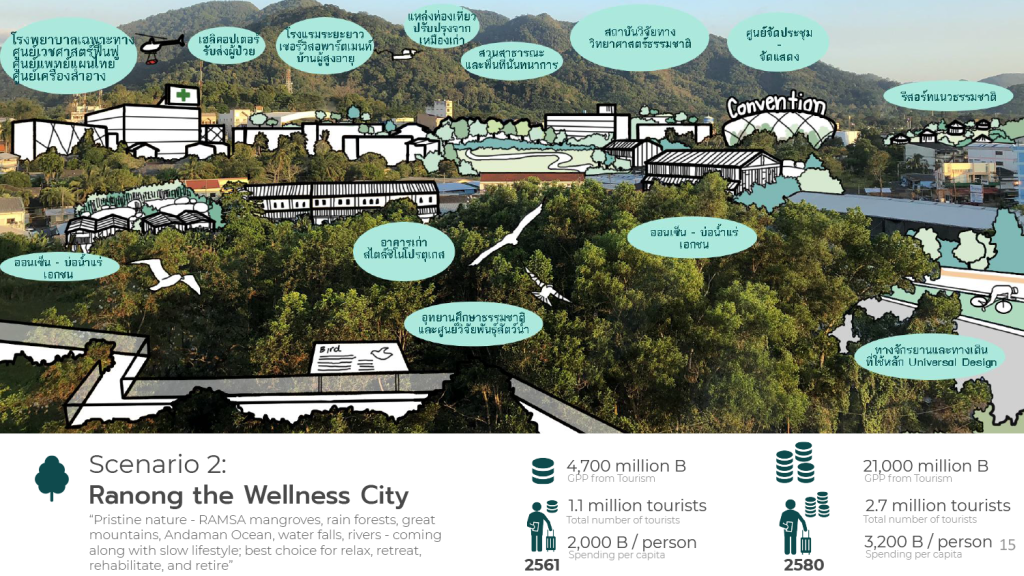Phannisa Nirattiwongsakorn
Thai: พรรณิสา นิรัตติวงศกรณ์. A licensed architect (B. Arch, Chulalongkorn University, 2007 – 2012, Fellow Architect No. 16124) and an urban planner (M.S., University of Wisconsin – Madison, 2015 – 2017), with focuses on architecture, environmental planning, and spatial statistics. Please see Linkedin or CV below.
Architecture
Having 3 years of experiences as a design architect at Four Aces Consultants Co., Ltd. (Bangkok, Thailand), I have handled a wide range of building design including house, office, hotel & resort, shopping mall, and etc. My design philosophy is clean and functional with a little bit of gritty/wabi-sabi elements. My favorite styles are contemporary Thai, and Tuscany. In terms of technology, I am capable of AutoCAD, SketchUP, Vray for SketchUp, and hand sketching.







Environmental Planning
Earned a Master degree in urban and regional planning, with environmental planning focus, from University of Wisconsin – Madison (2015 – 2017). Currently working as a plan and policy analyst at NESDC, on urban planning and environmental related policies. I have ghostwritten Master Plan under National Strategy on Smart Livable Cities (enacted in 2019). Its goals are to create, develop, and revitalize Thai cities to be liveable, inclusive, and technology-driven for national competitiveness, inequality reduction, and sustainable growth promotion. I also have written Thailand’s SDG Progress Report: 2016 – 2020 on SDG 11: Make cities inclusive, safe, resilient and sustainable. The report includes spatial analyses on city-related issues such as share of public space, accessibility to public transportation, and urban pollutions. I use satellite imagery and open urban data to monitor the progress of sustainable urban development of Thailand.
Spatial Statistics
In addition to urban planning, I am interested in quantitative research methods and spatial statistics using Geographic Coordinate System (GIS) as a major tool. My thesis, Impervious Surface Policy Adoption Across US Municipalities and Its Relationship to Climate Change Factors, is the synergy of my mapping and statistics skills. It finds that local communities tend to regulate the percentage of hardscapes (in both private and public land lots) if there are higher median income, higher flood risk, and more stringent state regulations on environmental management. The result is applicable to state government to encourage communities to adopt environmental-related policies.





Where the skills meet
From 10 years of experiences in urban planning and architecture. My skills are the combination of architecture + environmental planning + design.

My project with Charin Polpanumas Travel Time to the Nearest Hospital in Thailand, a visualization of travel time by cars to the nearest healthcare facility from anywhere in Thailand on an interactive map platform, is the example of where all skills meet. The project engages skills in data management (data collection and manipulation), spatial statistics (shortest route analysis), visualization, and health-related policies of Thailand. It also engages in a policy workshop at NESDC (the Office of National Economic and Social Development Council of Thailand) to encourage data-based policy-making processes.

Community Building
Received 2016 – 2017 Jessica Bullen Community Service Award, from UW Madison’s Department of Urban and Regional Planning.
An award named in memory of Jessica L. Bullen, who is killed in a car-bicycle crash in July 2005, shortly after graduating from the Department and winning the AICP Outstanding Student Award. This award, given in her honor, recognizes community service by a graduating planning student. Community service is defined in the broadest possible terms, including service to the Department, the University, Madison area, or national/international service in the largest sense of the Wisconsin Idea.
Jessica Bullen Community Service Award
I believe that building communities is an undeniable part of creating better society, in both physical and non-physical senses. Since 2017, to create an appropriate environment for Data Science to thrive, I have been a co-founder and co-organizer of Data Science BKK.
No-nonsense, no-agenda meetup for data science and data engineering practitioners in Thailand. We welcome speakers and participants from all companies and industries. We believe in a place where we can truly share ideas and best practices without commercial interests–data people to data people. Meanwhile, Spatial Science BKK is a DSBKK’s spinoff on Geographic Information System (GIS) and other spatial-based data, majorly aimed to expand the horizon of ‘Data Science’.
Data Science BKK
To share knowledge, I have been teaching GIS and urban planning since 2019. I was a lecturer on GIS for Thailand ICT Camp 2019 and Data Journalism Workshop 2020.
Selected Works
Reimagine Ranong: the Action-Based Policy Lab Initiative
My urban planning contributions are not limited to plan making and quantitative analysis, but action-based urban planning practices with local communities. I have led Reimagine Ranong, an experimental urban development project to explore new approaches of policy making process tthat are more connected to the real needs of citizens, between December 2018 – August 2019. Design Thinking was the major tool we used for the project. We started from conducting preliminary research on the contexts, challenges, capacities, and opportunities of Ranong through secondary research, formal discussions with the local agencies, as well as informal discussions with the citizens of Ranong from different backgrounds. Based on the insights we gained, we took these assumptions to discuss and revise with experts of urban planning, landscape architecture, local tourism development, business development, and banking to create the guiding principles for Ranong. Then we used such guiding principles to create two most possible future scenarios. The baseline scenario was the current trajectory of mass tourism, Ranong Mass Tourist City. The alternative scenario Ranong Wellness City made use of its natural resources such as RAMSAR mangrove forest and hot springs for sustainable and medical tourism. To test out our scenarios, we visualized both and presented to 95 local citizens and asked their opinions on a survey. After the surveys, we revised the preferred scenarios and developed city’s development guideline in a technical report.
ThaiME as the Catalyst of More Active Society

In July 2020, Charin Polpanumas and I has scraped, cleaned, and published the data for further analyses by anyone who is interested in the approximately 40,000 proposed government projects under the provision of Emergency Decree on Authorizing the Ministry of Finance to Borrow Money for Economic Recovery due to Corona Virus 2019 Pandemic B.E. 2563 (พระราชกำหนดให้อำนาจกระทรวงการคลังกู้เงินเพื่อแก้ไขปัญหา เยียวยา และฟื้นฟูเศรษฐกิจและสังคม ที่ได้รับผลกระทบจากการระบาดของโรคติดเชื้อไวรัสโคโรนา 2019 พ.ศ. 2563) with the loan ceiling of 400,000 million Baht (approx. 12,500 USD). We hope that, with data, people can engage in government budget process and become more active citizens which will create stronger communities.
Contact
Please feel free to contact me at:
Email: pnphannisa@hotmail.com





